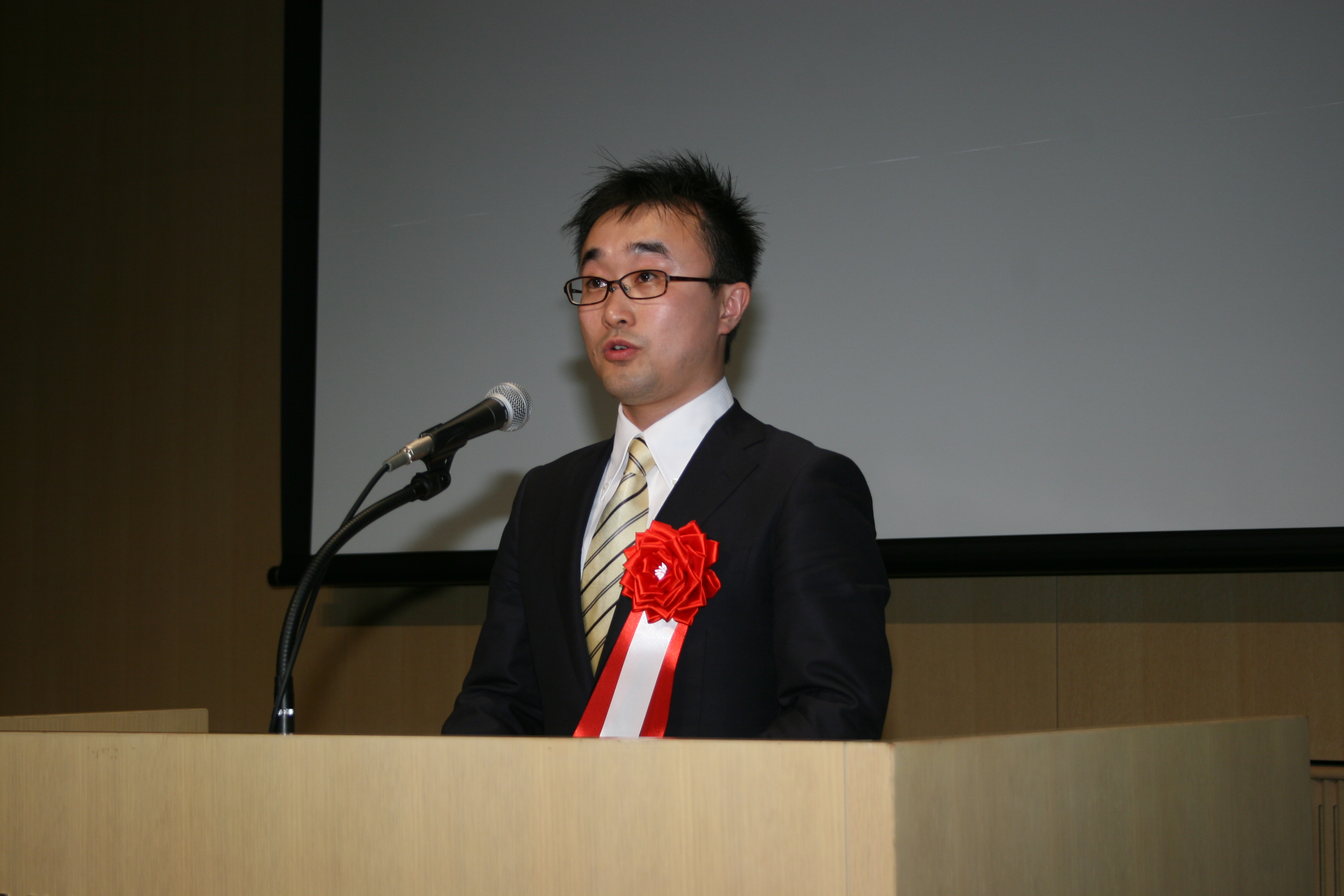 The 12th Asia Pacific Research Prize (Iue Prize) “Commendation” Winner:
The 12th Asia Pacific Research Prize (Iue Prize) “Commendation” Winner:
Dr. Jing Liu
Title of Dissertation
Title of Dissertation :
“The Development of Inequality in Public School Admission: Public Discourses on Ze Xiao and Practices in Urban China”

- Dr. Jing Liu
-
- Career -
Jing Liu, is working as Assistant Professor for “Re-Inventing Japan Project” at Graduate School of International Development, Nagoya University. He received his B.A. (Policy Studies) from Nanzan University in 2007, M.A. (International Development) in 2009 and Ph.D (International Development) in 2013 from Graduate School of International Development Nagoya University. From 2009 to 2010, as a doctoral student, he worked as intern in UNESCO Bangkok Office and visited School of Education, University of Pittsburgh as visiting scholar. His research interests include International Development (Educational Development), Sociology of Education and China Study.
- Summary -
- Management History of the Chinese Eastern Railway:
Russia and Manchuria, 1896–1935 - This qualitative research aims to explore and interpret the reasons for shaping the actual situation of admissions to public junior high schools (various criteria for choice in admission and intervention of parents in admission), called as Ze Xiao, in urban China. Also, it clarifies the gaps, information selection and power balance in the same process.
In general, Ze Xiao refers to activities in which parents compete for enrolling their children to the limited number of popular schools they prefer instead of the public schools based on the public school admission policy. In recent years, despite the government’s opposition towards Ze Xiao through releasing a series of regulations, activities of Ze Xiao has not abated. Rather, diverse channels for Ze Xiao were innovated in response to the govenrment’s action of mitigating Ze Xiao.
In order to explore how the situation of Ze Xiao transformed with the change of social stratification order in China as a socialist country in transition to market economy, the interpretation and exploration were conducted through analysis of public discussion on Ze Xiao collected from newspapers, policy documents, journal papers, books and interviews in the past 30 years. A case study of Ze Xiao in Community A of Beijing was conducted to contrast practice in Ze Xiao to the public discussion on Ze Xiao.
The findings of the study demonstrate that Ze Xiao presents the negotiations on interests among stakeholders in admission to public junior high schools. Moreover, it has become positional competition in public school admissions that intensified the effects of family background on children’s education in urban China. The findings also show that the negotiations of interests for Ze Xiao in public school admissions were shaped by multi-dimensional forces. It also found that people’s participations in Ze Xiao was positioned by government policies, their socioeconomic status, as well as some cultural, historical, traditional and institutional factors with local characteristics.
In the transition to market economy, Ze Xiao can be considered as the negotiation between the power, the privileged, the disadvantaged and the market in public school admission to junior high schools. The power and the privileged can still continue keeping their advantages in the redistribution of public education resources for their offspring. Moreover, the analysis of channels for Ze Xiao indicated the inequality in public school admission to junior high schools in urban China is constructed by exclusion and usurpation at multiple-layers among stakeholders.






